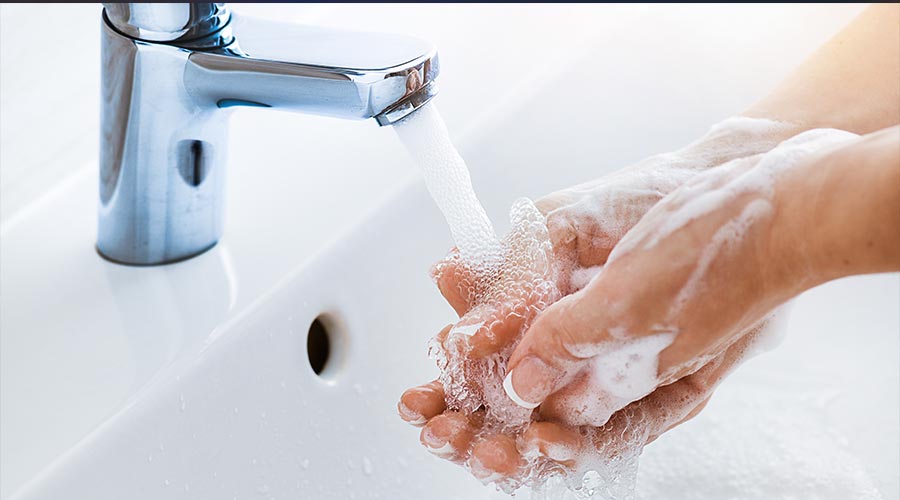
When it comes to taking care of one’s health, cultures across the world have a variety of approaches but one proven practice that unites everyone is handwashing with soap.
Each year on Oct. 15, Global Handwashing Day highlights how consistently washing hands with soap and water is an easy, effective and affordable way to prevent the spread of diseases and save lives. This year’s theme raises the question: “Why are clean hands still important?,” reinforcing the vital link between good handwashing habits and counteracting disease.
According to the Global Handwashing Partnership, creators of Global Handwashing Day, when handwashing with soap is practiced regularly at key times, such as after using the toilet or before contact with food, it can dramatically reduce the risk of diarrhea and pneumonia, which can cause serious illness and death. Handwashing with soap also helps prevent the spread of other infections, including influenza and Ebola.
Diarrhea and pneumonia are leading causes of death for children under the age of five. However, the practice of handwashing with soap has the proven potential to save lives, cutting diarrhea by almost one-half and acute respiratory infections by nearly one-quarter. Further, children lose 443 million school days each year because of water-related illnesses. Without handwashing facilities in schools, children are more susceptible to illness, and less able to learn, grow and thrive.
Medical experts from the Centers for Disease Control and Prevention (CDC) and the World Health Organization (WHO) agree that developing a habit of consistent and thorough handwashing with soap and water can prevent the spread of germs that cause illness. It’s especially important to wash your hands before and after eating or handling food, caring for someone who is sick, or after using the restroom, sneezing, coughing or blowing your nose.
Survey Examines Americans’ Handwashing Habits
With a similar goal of stressing the health importance of regular handwashing, Bradley Company, an international manufacturer of commercial washroom fixtures, conducts an annual Healthy Handwashing Survey. For 15 years the survey has studied Americans’ self-reported handwashing beliefs and behaviors, revealing in 2024 that nearly all Americans (95 percent) believe handwashing is important in maintaining overall health. Additionally, the survey found that engaging in handwashing makes us feel safer and healthier — 72 percent associate at least one of those feelings in the moment immediately after washing their hands.
Further, the adult respondents who are parents work to instill this cleanliness habit in their children — 63 percent ask their children to wash their hands, 39 percent buy fun soaps and 30 percent incorporate it into their routine.
Overall, Americans seem to be fairly conscientious about hand hygiene, as respondents wash their hands 89 percent of the time after using a public restroom. The majority of those who skipped the cleansing step cited a lack of soap or paper towels while others claimed nonworking sinks hampered their efforts.
“The aim of our survey is to keep the health benefits of handwashing with soap top-of-mind, especially as we head into cold and flu season. Celebrating Global Handwashing Day is a natural outgrowth of that mission,” says Jon Dommisse, vice president of business development and strategy for Bradley. “This day is also an excellent reminder for facilities to provide clean, well-stocked and maintained restrooms that support handwashing with soap.”

 The Down and Dirty on Cleaning in Virus Season
The Down and Dirty on Cleaning in Virus Season How Surfactant Use is Expanding in Commercial Cleaning
How Surfactant Use is Expanding in Commercial Cleaning Operational Excellence Series 2025: Better Budgeting
Operational Excellence Series 2025: Better Budgeting